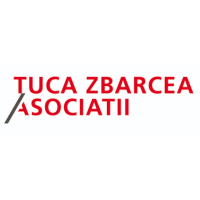

Head of legal | Romanian Football Federation (Federatia Romana de Fotbal)



Adrian Stângaciu
Head of legal | Romanian Football Federation (Federatia Romana de Fotbal)
Team size: Six
Could you share an example of a time when you came up with an innovation that improved the way your legal team works and did not come at a huge cost?
I created a self-service knowledge base for FRF internal staff. A self-service knowledge base is a centralised repository of information about the FRF’s legal policies, procedures, and resources. It can be used by FRF employees to answer their own legal questions without having to contact the legal team. To create a self-service knowledge base, I started by identifying the most common legal questions that the legal department receives. Once these questions were identified, articles or other resources were created in order to answer the questions in a clear and concise way. The knowledge base is available on the FRF intranet or through emails and other communications channels, depending on the subject. Overall, creating a self-service knowledge base is a smart investment for any legal team. It is a low-cost way to improve efficiency, provide better service and empower employees.
What are some of the key developments that have affected your business over the last year?
The military conflicts in Ukraine and Israel:
Ukraine being one of the Romania’s neighbours and Israel being part of the group for the qualifiers to the EURO 2024, the military conflicts in both countries affected the FRF activity in a direct way. Matches being cancelled or impossible to be played at the venues initially decided on the affected territories determined several challenges from a legal point of view (for example, contracts having already concluded with hotels and travel companies, and payments having already made). FRF also acted to help the refugees from Ukraine and also allowed football players from Ukraine to play for a limited time in Romania, irrespective of the contracts that such players may have in place with clubs from Ukraine. The FRF has implemented a number of measures to address these challenging issues.
The Covid-19 pandemic:
The Covid-19 pandemic has had a significant impact on the FRF. The pandemic has led to the cancellation or postponement of many football matches. The FRF has also had to implement a number of protocols to protect players, coaches, and fans from infection.
How do you think the in-house legal role will evolve in the coming years?
The in-house legal role is expected to evolve significantly in the coming years. Some of the key trends that are likely to shape the future of the in-house legal role include:
Technology is already having a major impact on the legal profession, and this trend is only going to accelerate in the coming years. In-house lawyers will need to be proficient in the use of legal technology in order to be effective in their roles.
In-house lawyers are increasingly expected to play a strategic role in their organisations. This means that they need to have a deep understanding of their organisation’s business and industry. In-house lawyers also need to be able to communicate effectively with business leaders and to provide them with sound legal advice that is aligned with the organisation’s business goals.
In today’s increasingly complex and globalised business environment, risk management is more important than ever before. In-house lawyers play a key role in helping their organisations to identify, assess, and mitigate risks. In the coming years, in-house lawyers are expected to focus even more on risk management.
Compliance is another important area of focus for in-house lawyers. In-house lawyers are responsible for ensuring that their organisations comply with all applicable laws and regulations. This is a complex and challenging task, and it is likely to become even more challenging in the coming years.
In addition to these general trends, the in-house legal role is also expected to evolve in response to specific industry developments. For example, the rise of new technologies, such as artificial intelligence and blockchain, is creating new legal challenges for businesses. In-house lawyers will need to stay up to date on these developments and be able to advise their organisations on how to comply with the law and mitigate risks.
Head of legal | Federatia Romana de Fotbal
Head of legal | Federatia Romana de Fotbal